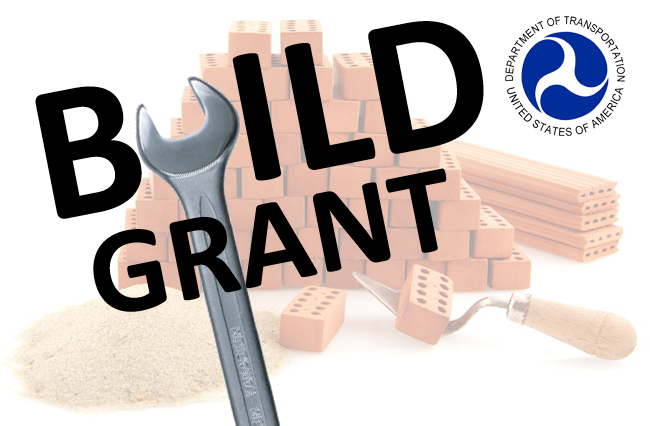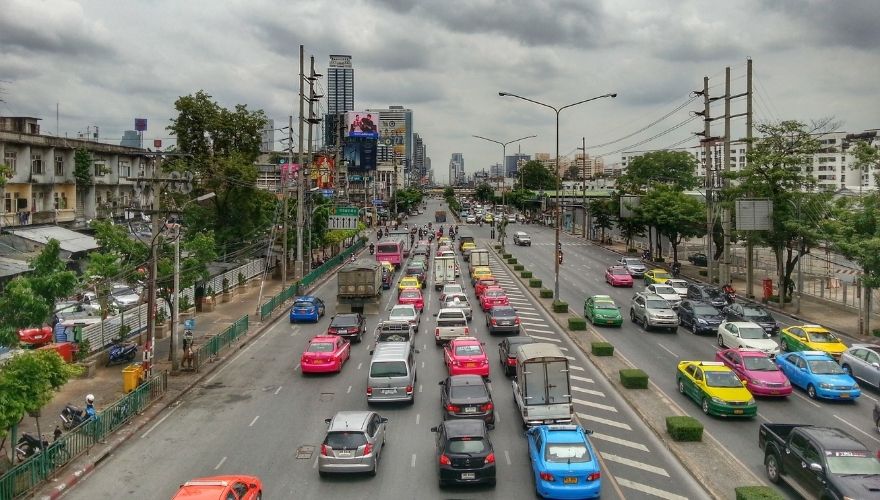Opportunities for infrastructure and transportation grants don’t come along every day, so when they do, it’s important to be ready to take advantage of them. These grant applications can be lengthy and time-consuming. GrantWriterTeam can help you find an experienced grant writer with a proven track record of success. Click this link to Request a Grant Writer.
Better Utilizing Investments to Leverage Development (BUILD) grants were announced on Dec. 11 at an event at the Department of Transportation (DOT) headquarters. The department said it divided the funds among 91 projects in 49 states plus the District of Columbia. The only state to not receive a BUILD grant this year was Hawaii. BUILD grants are designed to stimulate stagnant infrastructure spending nationwide, the funding will also provide jobs and economic stimulus for all areas of the country.
The following article was reprinted from Strategic Partnerships, with the permission of the author: Mary Scott Nabers.
There’s new funding – $1.5 billion – now available to fund critical transportation projects. Government officials are moving quickly to finalize plans and contracting solicitations should be rolled out soon. More than 90 roads, rail, transit, and port projects planned in rural and urban areas of the United States will benefit from the new grant funds to support expanding and upgrading American infrastructure. These funds will offer financial support for projects in 49 states and the District of Columbia and will supplement existing or alternative financing for the projects.
Inside the Infrastructure Revolution: A Roadmap for Building America, a handbook for contractors, investors and the public at large, explores how public-private partnerships or joint ventures can help finance their infrastructure projects. Nabers describes in detail the development of joint ventures that transfer risk and maintenance responsibility to private vendors under long-term contracts–with government retaining control and oversight.
The revenue is part of the Better Utilizing Investments to Leverage Deployment (BUILD) grant program. This program was once the very popular Transportation Investment Generating Economic Recovery, or TIGER, grant program. The federal government encourages using these funds with a variety of other financing sources, including municipal bonds, public-private partnerships, and/or alternative funding from other sources.
Crumbling infrastructure continues to plague government officials. The funding needs for transportation projects are great, as evidenced by the fact that requests for funding totaled $10.9 billion. That’s more than seven times the $1.5 billion that is available in the program.
Projects in rural areas received special dispensation. While urban areas must consolidate other funding with BUILD grants, public officials in rural areas can use this funding for up to 100 percent of the costs of a project. That’s good news for the 62 projects awarded grants in rural areas. Rural applications represented 59 percent of the total applications.
Approved projects incl ude the construction or rehabilitation of more than 200 bridges nationwide, including $20 million toward a nearly $30 million rural project in California to widen a border port of entry. Restoration and rehabilitation of arches and their foundations on the Manhattan and Brooklyn approach to the Brooklyn Bridge are part of a $337.6 million project that was awarded a $25 million BUILD grant.
ude the construction or rehabilitation of more than 200 bridges nationwide, including $20 million toward a nearly $30 million rural project in California to widen a border port of entry. Restoration and rehabilitation of arches and their foundations on the Manhattan and Brooklyn approach to the Brooklyn Bridge are part of a $337.6 million project that was awarded a $25 million BUILD grant.
Oregon’s International Port of Coos Bay plans to spend $25 million for improvements on approximately 15 bridges along its rail line. The project will enhance safety and extend the life of the bridges. A $20 million BUILD grant was awarded to help fund the project.
The largest grants awarded were $25 million, with no more than $150 million awarded in any state. One $134.5 million project to complete a 4.8-mile, four-lane interstate facility in southwest Missouri that will bypass US-71 and connect to Interstate 49 in Arkansas got grant funding. The city of Spring Hill, Tennessee, will use a $25 million grant toward its $48.3 million construction of an interchange on I-65. South Carolina was awarded $25 million to help fund a $51.1 million freight rail infrastructure improvements project.
Texas dominated the field of grant recipients. The Lone Star State was awarded five BUILD grants totaling more than $104 million. With a goal of building a four-lane thoroughfare and improving two existing roads, the city of Haslet will use a $20 million grant to defray the costs of a $59 million rural project expected to relieve traffic congestion. Funding of $14.05 million was awarded to the Brazos Transit District to help pay for a $17.5 million project to replace more than 30 existing buses with diesel and zero-emission battery-electric buses.
In Maryland, grant funds totaling $6.5 million will help fund a $32.7 million public-private partnership project to add a second berth at the Seagirt Marine Terminal. Sioux City, Iowa, was awarded a $7 million grant to cover the entire cost of a project to design and build an operations and bus storage facility for the Siouxland Regional Transit System. More than 100 traffic signals statewide will be replaced or enhanced in South-Central Maine with a BUILD grant of $8.2 million paying for half of the $16.48 million costs of phase one of the project. Some of the signal systems will include features such as adaptive signal technology, dedicated short-range communications, and infrared camera detection.
The city of Espanola, New Mexico, received a grant of $1.29 million to help fund a $6.1 million project to construct a maintenance facility, vehicle wash bay and fueling station for the North Central Regional Transit District. And in Youngstown, Ohio, upgrading pedestrian safety is the goal of a $26 million project that will provide autonomous transit shuttles, transit waiting environments, pedestrian and bicycle facilities, and LED lighting. This project was awarded a $10.8 million BUILD grant.
The positive impact of BUILD grants is undeniable. Designed to stimulate stagnant infrastructure spending nationwide, the funding will also provide jobs and economic stimulus for all areas of the country.
The new funding is a positive indicator of a busy year in 2019.
About the Author: Mary Scott Nabers is president and CEO of Strategic Partnerships Inc. (SPI), a business development company specializing in government contracting and procurement consulting throughout the U.S.
Sources:

Recent Comments